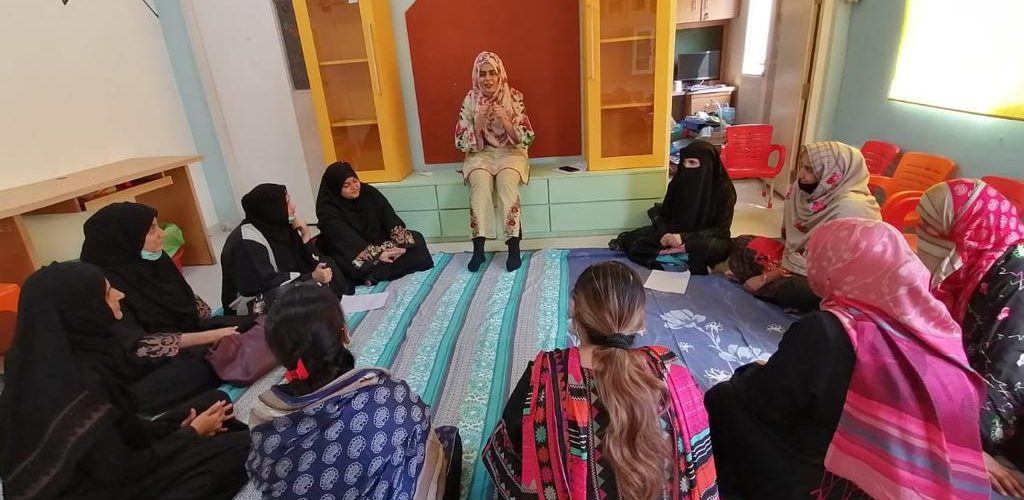COCHLEAR IMPLANT TEAM INITIATES EHSAS KA SAFAR
The Cochlear Implant Program at The Indus Hospital is responsible for conducting cochlear implant surgeries of patients with profound hearing loss as well as post-operative rehabilitation including mappings, speech language therapy, and behavior therapy. The arduous process from pre-operative assessments up till the surgery and beyond, involves contributions of all team members i.e. the ENT surgeon, audiologist, speech language therapist, psychologist and most importantly, parents of the cochlear implant recipient.
Raising children may be a rewarding experience for parents yet it has its own stresses and challenges. These challenges are multiplied and take on a completely different dimension when raising a child with special needs. These parents, primarily mothers, are laden with physical and mental exhaustion as a result of uninterrupted caregiving.
Realizing the consequences this stress may have on the mental and physical health of the mothers of hearing impaired children, the Cochlear Implant team has taken an initiative called Ehsaas ka Safar. It is intended to be a support group for mothers of children with cochlear implants. The team plans to conduct these sessions twice a month and address common stressors identified by the parents, psychologist and speech language therapists during routine speech language therapy sessions.
The first session of this support group was conducted on October 5, 2020, comprising nine mothers. It was led by Ms. Bisma Gulzar, psychologist, Cochlear Implant. The audiologist, Ms. Haya Awan, and speech language therapists, Ms. Rabika Zuberi and Ms. Khadija Fatima, were also present in the event. Through icebreaking activities and lighthearted discussions, the session aimed to introduce the mothers to each other and provide them with emotional support. In simple terminology and through relatable events, Ms. Bisma spoke about the signs and symptoms of stress such as unexplained physical pains, mood changes, and frustration. She also discussed practical coping strategies such as including meditation in one’s routine, the importance of ‘me-time’ and talking to a trusted friend. Moreover, she also attempted to break the stigma around approaching mental health professionals and discussed the benefits of talk therapy. She concluded the session with guided imagery and coloring activities which largely helped the mothers to feel mentally relaxed. The mothers were encouraged to remain in contact with each other and build a social support network amongst themselves.
At the end of the session, the mothers expressed that they found this session to be a refreshing break from their hectic schedules. They said they had felt heard and realized they are not alone in their struggles. They exhibited eagerness to attend more of such sessions in the future. The Cochlear Implant team realizes that these mothers have a long and strenuous journey ahead of them and pledges to ease this journey by continuing to organize such programs in the future.
Karachi, Pakistan




